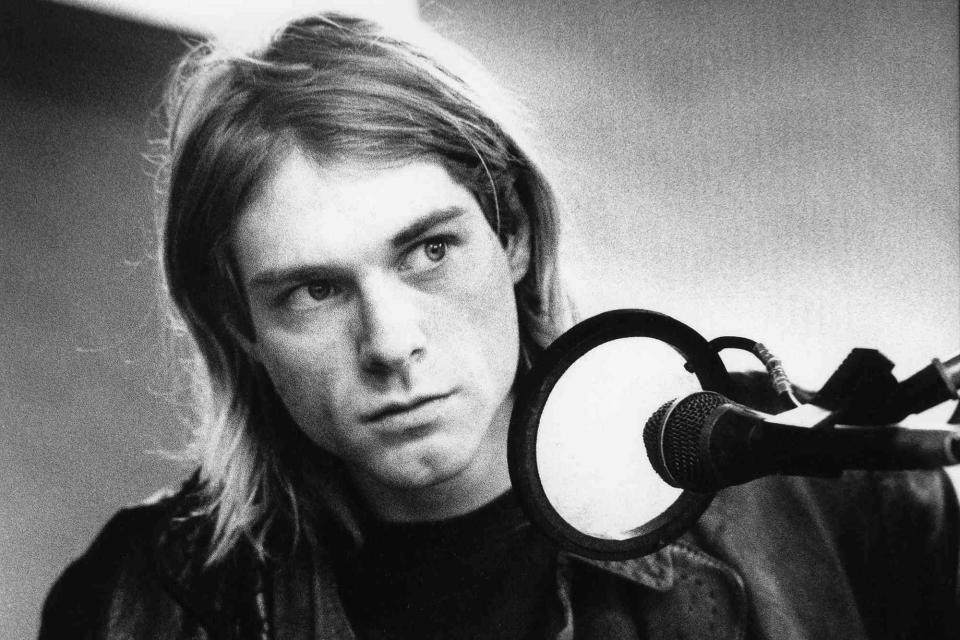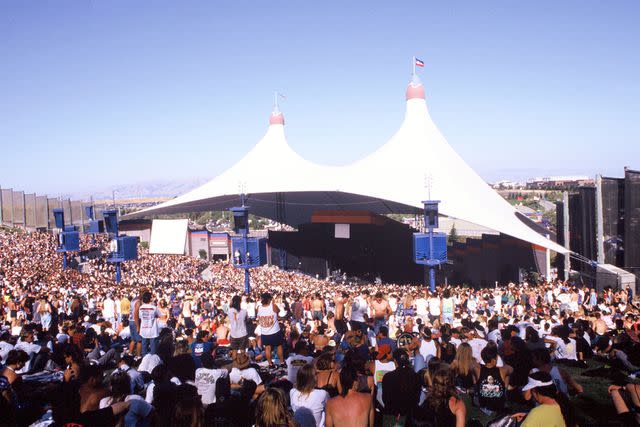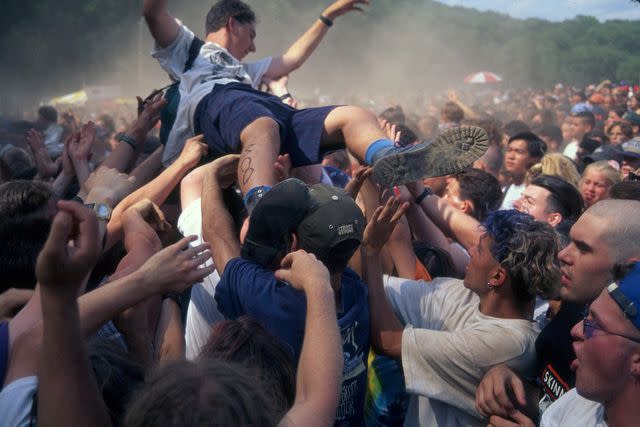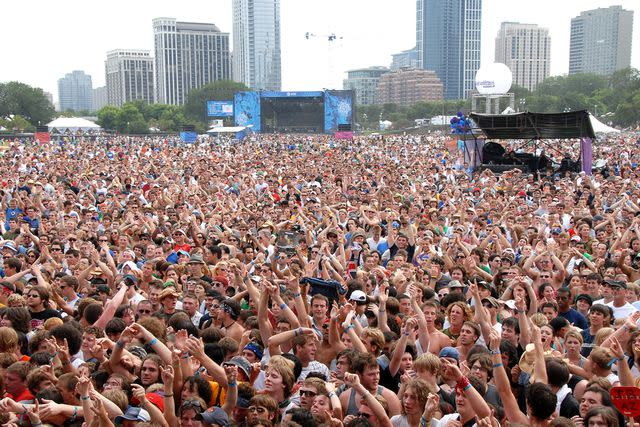“Lolla: The Story of Lollapalooza ”Reveals Why Kurt Cobain Pulled Nirvana's Slot in 1994: It Was a 'Sellout Moment'
- Oops!Something went wrong.Please try again later.
'Lolla: The Story of Lollapalooza,' which explores how the popular music festival came to be, premiered at Sunday

Michel Linssen/Redferns
Kurt CobainIn 1994, Nirvana was set to headline Lollapalooza in its third-ever iteration. Then, in fear of "selling out," Kurt Cobain backed out.
In Lolla: The Story of Lollapalooza, premiering Thursday at Sundance Film Festival, viewers will get an in-depth look at the music and culture that started the beloved music festival.
In the summer of '91, what started as a farewell tour for Jane's Addiction turned into a cultural movement that changed the landscape for music festivals going forward. Those first few years provided a stage for iconic acts like Ice-T, Pearl Jam, Rage Against the Machine and Green Day.
The second episode of the three-part documentary, which was directed by Michael John Warren and produced by James Lee Hernandez and Brian Lazarte, reveals that Nirvana was set to play alongside the Beastie Boys, Smashing Pumpkins and Patti Smith in the summer of '94.
“We were planning the festival and Nirvana thought about it but decided that they couldn’t do it. Kurt couldn’t do it," Don Muller, co-founder of Lollapalooza, says.

Tim Mosenfelder/Getty
Lollapalooza in July 1992 in Mountain View, California"Kurt was terrified of selling out and Lolla was a sellout moment I think for them. He very clearly at that point was talking about how he looked in the audience and he saw all of the people that were beating him up in school — and me too, right?" John Rubeli, second stage booker for Lollapalooza from '93-'95 adds.
He concludes, "Nirvana was everything to us. When you’re alongside something that once in a generation, once in a lifetime, it just fulfills you in every way."
That same year, Cobain died by suicide at age 27 in his Seattle home. Perry Farrell, frontman for Jane's Addiction, remembers the days leading up to his death in the documentary.
“I had heard that Kurt escaped from a rehab and they were actually wondering if I knew where he was," Farrell, 64, says. "I did not know where he was and then a few days later they told me that he had shot himself."

Bill Tompkins/Getty
Lollapalooza in June 1993 in New York CityL7's Donita Sparks adds, "When Kurt died… it was the end of an era.”
Warren, the director, was only 17 years old when he attended the inaugural Lollapalooza and he remembers it as an "incredible day."
"I'm just 17 years old. I haven't seen the world. I haven't gone to college. I've done almost nothing. The day felt dangerous to me," he tells PEOPLE. "Henry Rollins opens the day. The Butthole Surfers are firing shotguns off over the audience. Nine Inch Nails is just absolutely ferocious and unlike anything I had seen. Living Color, I was a huge Living Color fan, and I got a high five from Corey Glover, the lead singer of that band and I almost passed out."
Related: Billie Eilish Debuts 'Barbie' Song 'What Was I Made For?' at Lollapalooza: Watch
"Ice-T was totally mind-blowing. He was doing a split set," Warren recalls. "I loved his rap music when I was a kid. So the first half of his set was rap, and then he brought out Body Count, and they do 'Cop Killer.' And I was like, holy s---, I can't even believe you can say or do that on stage."
Most importantly, this documentary is meant to serve as a message for Gen Z, depicting the similarities in what they're living now — and what Gen X lived then.

KMazur/WireImage
Lollapalooza in 2006"When I was a 17-year-old kid growing up in suburbia America in the early '90s as a teenager, I felt sort of like... We'd seen a lot happen in the world, and my generation was pretty pissed off about a lot of things, frankly, that were going on."
"I think a lot of those same themes and a lot of the frustrations of Gen Z right now are not completely different from what Gen X was feeling back in the day," Warren says. "There are things to learn from what Gen X did and what Gen X failed at. And now Gen Z's in that same position we were in back then."
A release date for the documentary is yet to be announced, though the first two episodes will premiere at the upcoming 2024 Sundance Film Festival, taking place Jan. 18-28 in Salt Lake City and Park City, Utah.
For more People news, make sure to sign up for our newsletter!
Read the original article on People.

